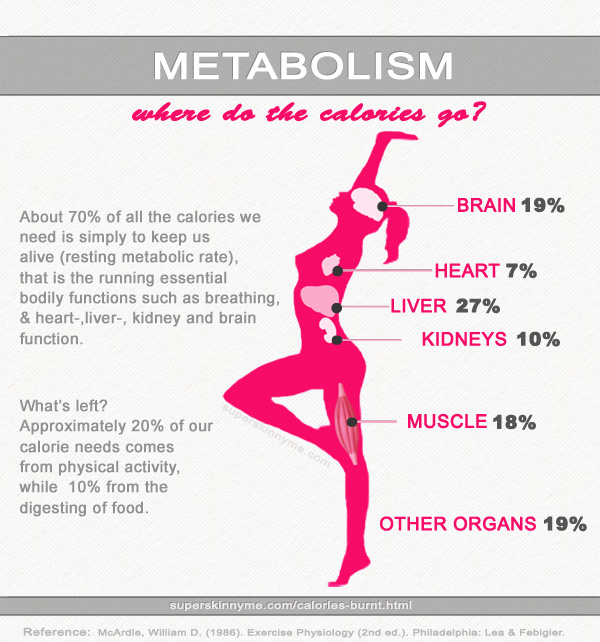Lose Weight > Common Sense To Lose Weight > Common Sense Article > What Can Brazil Teach The U.S. About Ethanol?
What Can Brazil Teach The U.S. About Ethanol?
Among them was CNBC's own Global Energy Expert, Daniel Yergin, who, as one of the keynoters, was charged with delivering the global energy view. CNBC's Website caught up with Dan, chairman of Cambridge Energy Research Associates for a few questions between planes-en route from Sao Paulo to the St. Petersburg Economic Forum in Russia.
Brazil is way ahead of the U.S. in terms of ethanol production. What can we learn from their experience?
Brazil is ahead of the U.S. but not in terms of volume. The U.S. produces more, and output is growing fast. But Brazil is ahead in terms of experience -30 years of commercial activity- and cost. Its great advantage is that it is by far the low-cost producer.
Why?
Ethanol based on sugar cane is easier to produce. You're starting with sugar. Corn needs to be turned into sugar. Another reason became very evident when, on a rainy, muddy Saturday - and an hour's flight from Sao Paulo, and another 40 minutes by car into the countryside - I tramped around a mill and went out into the fields to watch sugar being harvested by state-of-the art harvesting machinery. These are highly integrated operations.
One of the key reasons for their low cost is that the mills are self-sufficient in terms of energy; they make their own electricity out of baggasse, the ground-up waste product from the sugar cane plant.
What has the ethanol experience done for Brazil's energy consumption?
Ethanol has had its ups-and-downs, its booms and busts and disillusionment in Brazil. But people learned a lot. Today over 80% of new cars can operate on either gasoline or ethanol. And Brazilian gasoline itself is 23% ethanol. So, when you add it all up, about 40% of Brazilian auto fuel is ethanol, and that share is going to increase.
But keep scale in mind. The entire consumption of ethanol in Brazil is equivalent to about 3% of the U.S. gasoline market.
Is ethanol considered the long term solution for Brazil, or are they looking to future methods of fuel savings?
Brazil is committed to ethanol. Deeply committed. It's one of the main things that President Lula talks about on his trips around the world. The Brazilian state oil company, Petrobras, is planning long-distance ethanol pipelines.
Dilma Rousseff, who chaired my panel, is the former energy minister and now Minister of State and Chief of Staff to the President Lula. In her own remarks, before she introduced me, she said that while renewables are about 15% of total world energy consumption, in Brazil -- because of ethanol and hydropower -- they are 45%. The renewable share will go up as ethanol use increases and as increasing amounts of bagasse from sugar cane is used to make electricity.
What were the major issues at the conference?
There was a lot of discussion about technology, markets, logistics, policies and regulation, and -- of course -- about cellulosic ethanol, the "second generation" ethanol.
But the big underlying question was whether and when a global traded commodity market in ethanol would get going. If it does, Brazil will likely be the dominant supplier. In CERA's own new renewables study, we estimate that, in such a market, 70% to 80% of traded biofuels would come from Latin America, primarily Brazil.
Is this just a question for Brazil?
No. People in the rest of the world are beginning to see that opportunity. Three years ago, ethanol was not on the international investment agenda. Today a good deal of money from the United States, Europe, and Japan is flowing into Brazilian ethanol, often in partnership with the family businesses that are characteristic of the Brazilian business. These are investors who are betting on a global market.
George Soros stirred up quite a lot of attention at the conference when he announced that he is investing $900 million in Brazilian ethanol. He got even more when he described himself as a "speculator" in plunking down that much money, owing to the uncertainties that he sees about regulation in Brazil and about tariff and trade policies in the United States and Europe.
If the U.S. were to implement ethanol usage on the scale Brazil has, what would it do to U.S. gasoline consumption?
Forty percent of U.S. gasoline! That would be almost four million barrels per day! It took Brazil 30 years to get most of the distribution system into operation. You can see how the United States could get up to 900,000 or a million barrels per day with conventional U.S.-produced ethanol.
Down the road, it's highly likely that Brazil along with other countries will be exporting ethanol to the United States.
But to get to really big numbers will take that breakthrough in cellulosic ethanol that people are working on. And the estimates for the timing are all over the lot. And then there would be the big-ticket costs to lay out the logistics across the country. It took Brazil 30 years.
What's your takeaway?
There are two. First, it's how quickly perceptions of Brazil and its ethanol have changed. A few years ago, it looked pretty peripheral, even parochial, from an international point of view. Today, it's taken very seriously, and Brazil could well end up a significant oil exporter -- except it won't only be oil from its offshore oil wells, but also ethanol from sugar farms. This will add to the diversification of the global fuels market.
The second is that in years past, Brazil was not an important country from an energy point of view. Today, it is at the forefront in deep water drilling -- it has added half a million barrels of capacity since the beginning of this decade. And it is at the forefront of ethanol. They expected 500 people at the conference. More than 1200 showed up. And an awful lot of them were not from Brazil!
Related Articles
-
Effect of Rapid Weight Loss on Heart
‘Lose 10 kilos in a week’ may sound tempting to try, but
-
Losing Weight Naturally – 4 Helpful Weight Losing Eating Habits…
People taking part in a weight-loss program dont always understand
-
Weight Loss Diets Tips That Help You Lose Weight
In fact, national health surveys show Am
-
Quick & Easy Workouts To Burn Fat
Quick and Easy Workouts For the majority of us, we live overly chao
-
How To Burn Off Belly Fat
Just how do you get rid of belly fat, or strengthen the abs muscles? I
-
6 Ways To Lose Weight When Youve Tried Everything
- DON'T MISS
- Limit your choices and lose more weight
- Quick Weight Loss Tips - Things You Should Know About Weight Loss Success
- Advice For Getting Off Those Extra Pounds
- New Years Fitness Resolutions Why Do You Break Them Part 2
- Lose Weight With Proper Health Building Strategies
- Hoodia Slimming Pills - A True Miracle Diet Or Not?
- 6 Foods That Stimulate Your Sex Life
- The right steps on how to lose weight fast
- The Most Overlooked Weight and Fat Loss Tip
- Is Quick Weight Loss Possible?




